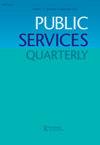Student-created media: designing research, learning and skill-building experiences
Q3 Social Sciences
引用次数: 1
Abstract
plagiarism, citing and referencing mistakes, inadequate paraphrasing, unauthorized translation, self-plagiarism, contract cheating, file sharing, and faculty plagiarism. Eaton takes her analysis a step further than many other publications on academic integrity, however, by delving into the risk factors that lead to plagiaristic activity. She devotes an entire chapter to diversity, equity, and inclusion, where she addresses how plagiarism correlates with the racial inequities and systemic biases that exist in higher education. Eaton also provides practical advice for educators related to evaluation and assessment, reducing file sharing, creating academic-integrity policy, and addressing plagiarism. What fundamentally sets this book apart from others on the topic is Eaton’s philosophy that plagiarism should be approached with a teaching and learning mindset. Rather than merely detecting plagiarism, instilling fear in students, and punishing violators, stakeholders should focus instead on using engaging methods to educate students to become ethical learners. She uses a “multistakeholder systems approach” (p. 58) to illustrate how academic integrity is cultivated by the many stakeholders having roles in educational systems. She advises faculty to teach students that referencing and citing are part of a knowledge-building process rather than simply a procedural chore necessary to avoid plagiarism. Plagiarism in Higher Education: Tackling Tough Topics in Academic Integrity was written with a broad audience in mind. While its content is relevant for students, faculty members, teaching assistants, academic librarians, writing tutors, and other student-focused staff members, any stakeholder concerned with issues of academic integrity in higher education will find the work decidedly beneficial. It is therefore recommended for all academic and public libraries.学生创造的媒体:设计研究、学习和技能培养经验
抄袭,引用和参考错误,不适当的释义,未经授权的翻译,自我抄袭,合同作弊,文件共享和教师抄袭。然而,Eaton通过深入研究导致剽窃活动的风险因素,使她的分析比许多其他关于学术诚信的出版物更进一步。她用了整整一章来讲述多样性、公平和包容,在那里她谈到了剽窃与高等教育中存在的种族不平等和系统性偏见之间的关系。伊顿还为教育工作者提供有关评估和评估的实用建议,减少文件共享,创建学术诚信政策,并解决抄袭问题。这本书在这个话题上与其他书的根本区别在于伊顿的哲学,即应该用教学和学习的心态来对待抄袭。利益相关者不应该仅仅是发现抄袭,给学生灌输恐惧,惩罚违规者,而应该把重点放在用有吸引力的方法教育学生成为有道德的学习者上。她使用“多利益相关者系统方法”(第58页)来说明在教育系统中扮演角色的许多利益相关者如何培养学术诚信。她建议教师们告诉学生,参考和引用是知识积累过程的一部分,而不仅仅是为了避免抄袭所必需的一种程序性琐事。高等教育中的剽窃:处理学术诚信中的棘手话题是为广大读者而写的。虽然它的内容与学生,教师,助教,学术图书管理员,写作导师和其他以学生为中心的工作人员相关,但任何关心高等教育学术诚信问题的利益相关者都会发现这项工作无疑是有益的。因此,建议所有学术图书馆和公共图书馆使用。
本文章由计算机程序翻译,如有差异,请以英文原文为准。
求助全文
约1分钟内获得全文
求助全文
来源期刊

Public Services Quarterly
Social Sciences-Library and Information Sciences
CiteScore
0.90
自引率
0.00%
发文量
38
期刊介绍:
Public Services Quarterly covers a broad spectrum of public service issues in academic libraries, presenting practical strategies for implementing new initiatives and research-based insights into effective practices. The journal publishes research-based and theoretical articles as well as case studies that advance the understanding of public services, including reference and research assistance, information literacy instruction, access and delivery services, and other services to patrons. Articles may examine creative ways to use technology to assist students and faculty. Practice-based articles should be thoroughly grounded in the literature and should situate the work done in one library into the larger context of the situation.
 求助内容:
求助内容: 应助结果提醒方式:
应助结果提醒方式:


